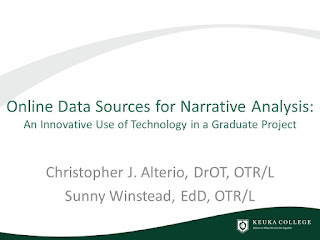A critique of the concept of 'occupational rights' on Constitution Day 2020

Today is Constitution Day - a good time to reflect on the nature of rights, particularly as this is an apparent topic of interest among some occupational scientists. Many people improperly believe that in an American context rights spring out of the Constitution. Actually, the so-called Bill of Rights is a list of governmental limitations - or actions that the government can not take against individuals related to their rights. One of my favorites is the ninth amendment - so limiting in its scope - it states that enumerating any rights in the Constitution shall not be construed to deny or disparage other rights retained by the people. So what is the actual source of these rights? The American Declaration of Independence states that they are endowed by a Creator - often interpreted as natural rights that are inalienable. Natural rights were previously identified by John Locke in context of England's Glorious Revolution - identified at the time as the rights ...




